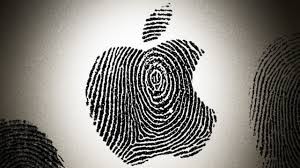 A federal judge has ruled that Apple should help investigators break into an iPhone belonging to San Bernardino, CA shooter Syed Rizwan Farook. Up until this ruling Apple has done everything within their power and within the law to assist in the investigation. Believing the ruling has far greater security implications, Apple CEO Tim Cook has announced that the company will oppose the ruling.
A federal judge has ruled that Apple should help investigators break into an iPhone belonging to San Bernardino, CA shooter Syed Rizwan Farook. Up until this ruling Apple has done everything within their power and within the law to assist in the investigation. Believing the ruling has far greater security implications, Apple CEO Tim Cook has announced that the company will oppose the ruling.
An iPhone belonging to the suspects was recovered from the scene of the mass shooting at a county health facility. Investigators don’t have the passcode and have been unable to recover the phone’s data. The court ruling is for Apple to help the FBI gain access by providing reasonable technical assistance. The problem is iPhone operating systems have built-security features to protect data security. Apple would need to create a new version of the iPhone OS that circumvents the security features. While this doesn’t sound particularly alarming if this new OS was only used for this instance, in the wrong hands this software would have the potential to unlock and decrypt the data on any iPhone. In the past, Apple has helped extract data from iPhones when issued with an appropriate warrant. Since iOS 8, however, full encryption has been enabled by default—a move that was seemingly introduced specifically to prevent such data-grabs by governments.
This edict comes amid an ongoing debate over privacy laws. Many security agencies assert that investigations are hindered by encrypted electronic devices that may contain crucial data. Conversely, many technology companies believe the requests are an overreach by the government and feel they have a responsibility to their customers to do everything in their power to protect personal information and privacy through encryption. To explain their position to their customers, Tim Cook has posted a message to Apple’s customers calling for public discussion so everyone can better understand just what is at stake.




